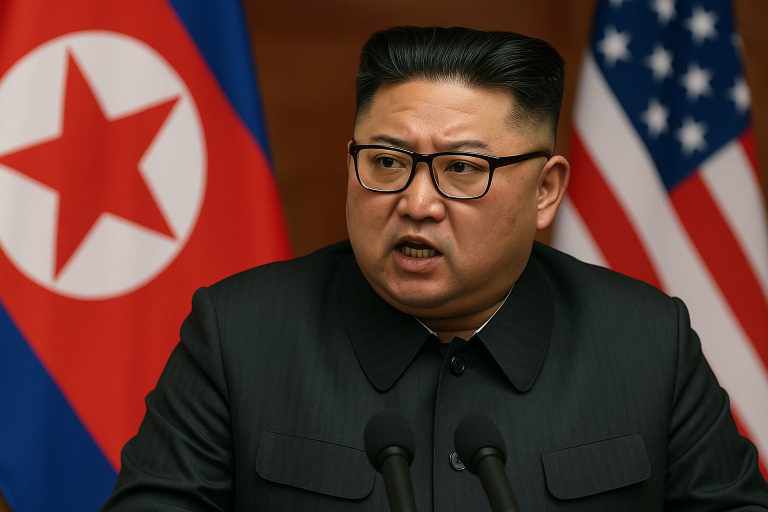In recent days, the United States and its allies have launched airstrikes against Iran, triggering intense reactions not only in the Middle East but also from other global powers. One of the most striking responses has come from North Korea—a country known for its firm stance against Western dominance. Pyongyang’s comments have added a new layer of complexity to an already volatile global situation.
North Korea’s Initial Reaction
According to North Korea’s state-run news agency, KCNA, the US-led attacks on Iran are a “blatant violation of international law and the UN Charter.” In a strongly worded statement, North Korea labeled the United States and Israel as the “true aggressors” and warned that “this may be the beginning of a new world war.”
The statement emphasized that such actions by the US not only destabilize the Middle East but also threaten global peace and security, urging immediate global condemnation.
Solidarity with Iran
North Korea declared full solidarity with Iran, stating that Iran has “every right to defend its sovereignty and territorial integrity.” Pyongyang hinted at the possibility of providing Iran with technical or diplomatic assistance to strengthen its defense capabilities.
According to analysts, this could imply potential collaboration in missile technology, drone systems, or strategic communications, raising concerns in Western defense circles.
Sharp Criticism of the United States
Pyongyang did not hold back in its criticism of the US. KCNA described Washington as “a terrorist state” that interferes in sovereign nations under the guise of security and democracy. North Korea further called on the United Nations to take immediate action against what it termed “American aggression.”
This appeal was seen as part of a larger strategy to isolate the US on the international stage and strengthen the narrative of a Western double standard in global diplomacy.
Regional Impact and Military Escalation
The aftermath of North Korea’s reaction is already visible in East Asia. In response to recent joint naval drills by South Korea, Japan, and the United States, North Korea launched multiple missile tests into the Yellow Sea.
Experts warn that these developments may escalate tensions not only in the Middle East but also in the Korean Peninsula—possibly forcing the US to confront simultaneous security challenges in two different regions.
North Korea’s military maneuvers may also be intended to stretch American defense focus, making it harder for Washington to maintain strategic dominance in both theaters.
Quiet Backing from Russia and China?
While neither Russia nor China has openly endorsed North Korea’s statements, both have expressed reservations about the legality and consequences of the US strikes on Iran.
Beijing and Moscow’s silence is being interpreted by some analysts as tacit support for Pyongyang’s position, indicating a possible realignment of power blocs in the face of rising Western militarism.
Conclusion: A Shifting Global Balance
North Korea’s vehement reaction to the US strikes on Iran has introduced a new axis of tension in global geopolitics. With solidarity statements, potential military cooperation, and escalating regional maneuvers, Pyongyang is signaling that it will not remain a silent observer in the US-Iran conflict.
As tensions rise across two major global fault lines—Middle East and East Asia—the world is potentially heading toward a more fragmented and unstable future.
Check More:

